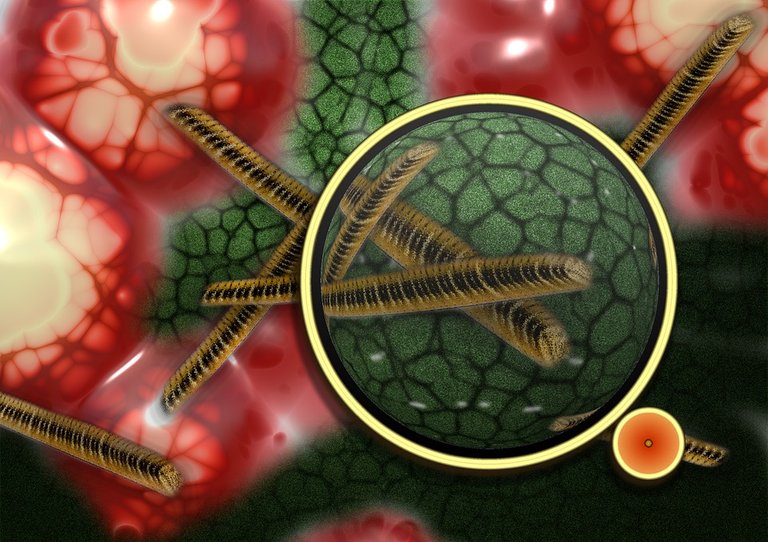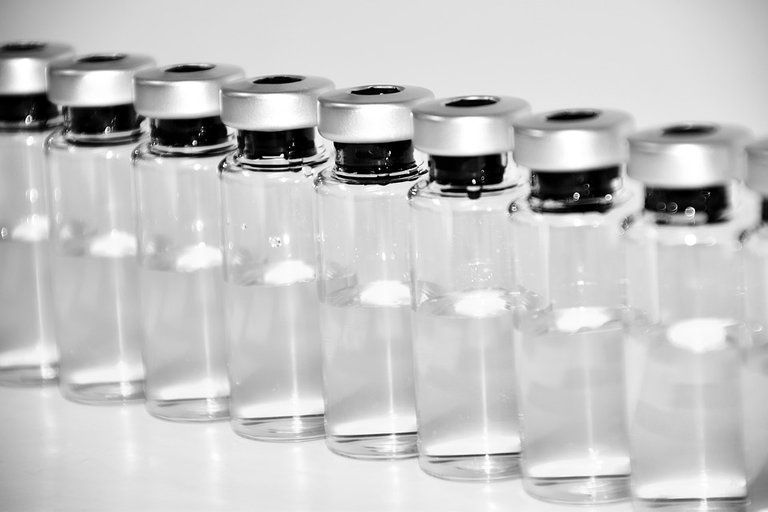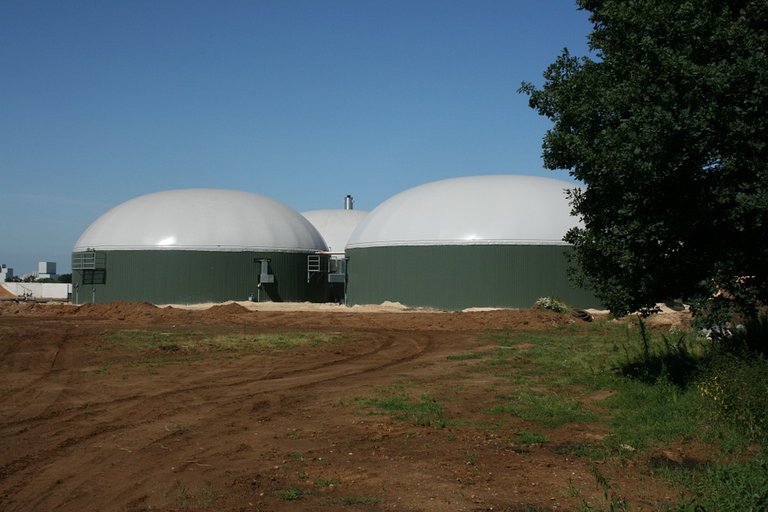Microorganisms or microbes are mostly considered to be bad, they cause infection, and cause disease. The general public believe microorganisms are generally harmful.
Meanwhile, there are some microorganisms that are good, they are part and parcel of us such as the bacteria found in the gut, the skin. They are normal flora of the human body.
What are Microorganisms?
 Source
Source
Microorganisms or microbes are small organisms that cannot be seen by the unaided eye. They are viewed with the aid of a microscope.
Microorganisms is a general name for a wide range of organisms which include but not limited to Bacteria, Fungi, Virus, Algae. Microorganisms are ubiquitous, they are found everywhere, from the coldest region such as the Pole to the hottest region like the desert.
The Good Microorganisms
Many don’t know that only a small percentage of microorganisms are bad, less than 20% constitute the harmful ones, while the remaining 80% are the good microorganisms. They offer the human race some good, and are widely used in the biotechnology industry.
The Good Side of Microorganisms.
Microorganisms have many good side which will be discussed below.
Development of Drugs
Unbelievable many of you will say, but yes microorganisms are infact utilized in creating drugs that have been helpful to the human race.
Antibiotics for example are created by certain microorganisms and it inhibits the growth or kill other microbes. The antibiotics is further synthesized chemically and modified to make it more efficient against diseases.
An example of microorganisms that produce antibiotics include Penicillium which is a fungi.
Vaccines is given in order to be immune against a particular disease. Vaccines usually contain attenuated microorganisms which provide acquired immunity against the specific disease.
 Source
Source
A known example is Bacillus Calmette-Guerin (BCG) vaccine. BCG vaccine is used against Tuberculosis. BCG vaccine contains Mycobacterium bovis a bacteria that causes abortion in cows.
Usage in Biotechnology Industry
Microorganisms are widely used in the biotechnology industry. They are employed in many areas to make life easier and better for humans. Usage of microorganisms in biotechnology can be found in
Environment- Microorganisms play a very important role in the environment. Take Bioremediation for example, microorganisms play a key role in it, they help in site cleanup in the safest way.
In the case of oil spillage either on land or water, some species of Pseudomonas can be employed to clean it up. They digest the oil, thus returning the site to its former state.
Food- Microorganisms play a vital role in some food preparation. Yeast that you all know for baking bread, is a microorganism. The Yeast specie is a fungi called Saccharomyces cerevisiae and it is used in baking, beer making, and wine making.
 Source
Source
It is mostly used as leavening agent in baking, where it converts the sugar in the dough to carbon dioxide which is a gas. This makes the dough to rise as the carbon dioxide form bubbles inside the dough. When you bake the dough, the Saccharomyces cerevisiae dies and the carbon dioxide bubbles settles. This is the reason you observe your bread is soft inside. It is the work of microorganism.
Also in yoghurt, Lactobacillus bulgaricus and Streptococcus thermophiles are used together as starter culture for yoghurt production. They convert lactose to lactic acid through fermentation.
All Yoghurt lovers should thank this bacteria because they are instrumental to the yoghurt taste and texture.
Energy Sources
Microorganisms especially bacteria can modify materials, create a process that can generate Energy.
 Source
Source
An example is Biogas. Biogas is methane, and it is produced when microorganisms acts on biodegradable matter (agricultural and household wastes), they release methane as by-products. Methane is thus collected and utilized. Biogas can be used for cooking, in gas engines etc.
I believe next time you hear, or think about Microorganisms you should think about their good side. They have their good side too which is much more than the bad they do.
Compiled by @zoneboy for @euronation.
The Team Is Made Up Of This Able Fellows Below:@euronation is a team of people with common goals and desires. The team was created with the intention to create awareness around Steem ecosystem, getting new members on board the program, nurturing as well as mentoring towards excellence and helping them to find strong footing in the program. We guide new members on the ethos of Steemit, how they can be creative and come up with amazing ideas and impact the community at large.
@eurogee @edith4angelseu @smyle @sweetestglo-eu @drigweeu @bob-elr @dray91eu @jeaniepearl, @adoore-eu

Join us on whatsapp with this link:
https://chat.whatsapp.com/9VhuK6475477fD7fPIYJ6i
Nice one@euronation
As good and advantageous as they are, sometimes when we take negligence of common hygiene, then they turn to bad guys, thats why some of them are reffered to as opportunistic organisms.
This is a lovely write up boss @zoneboy.
Head swell....
Thanks for this wonderful presentation on how microorganism can also serve purpose, I always tried to avoid it from past, now that it has positive effect, and that it's only 20% that have negative effect, I will admire them lol....
Anyway, thanks to you @zoneboy, and also to @euronation. Upper everyday!
Thanks @zoneboy for showing is the good side of microorganisms. We should all know that there is nothing God created that does not have it's good side
There is an age long symbiotic relationship between microbes and human... Thanks for a job well done @zoneboy and @euronation.
This post is highly beneficial to health and it's a good write up but in addition,good bacteria which naturally reside in the body promote digestive health,boost immune system and several forms are readily available as nutritional supplements .So,their usage will surely address specific health concerns.